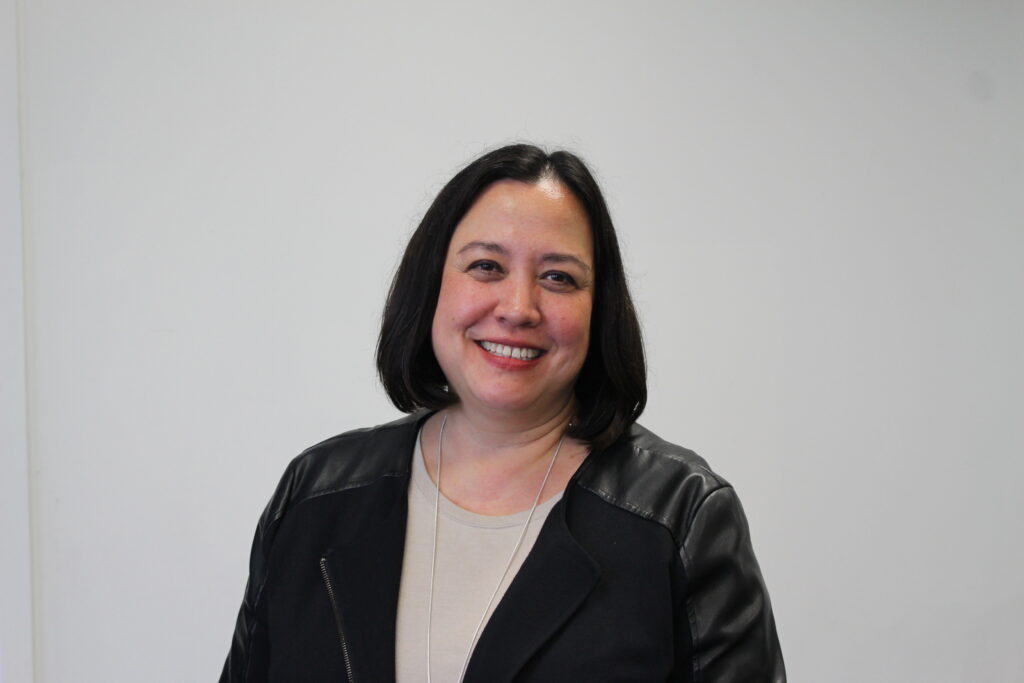
By Madeline Papcun | UConn Journalism
April 2024
Katherine Reynolds Lewis believes when her son was born 19 years ago, the news industry was “much worse than it is now” at accommodating working mothers.
“I literally would have colleagues saying, ‘Thanks for stopping by today, Katherine,’ when I left at 5 p.m.,” Lewis said in a phone interview in October 2023.
Lewis was once explicitly told by another colleague that a person “cannot be a good parent and also a journalist,” she recalled.
In the early 2000s, Lewis found the “general newsroom culture was not conducive to parenting.” As a national reporter for Bloomberg from 1998 to 2002, Lewis covered financial and commodities policy and regulators like the USDA and Congress, and also media and telecom policy.
Lewis saw very few moms at Bloomberg, and the ones that were there were always “stretched so thin,” she said. At a time when Lewis herself was considering having kids, this wasn’t an appealing future. Lewis was also growing tired of writing stories where “the goal was to beat the competition by 10 to 20 minutes.”
She was looking to move into more enterprise reporting, and got the opportunity to do so at Newhouse News Service from March 2003 to November 2008. At Newhouse, she was a national correspondent covering money, work, and family issues, meaning her work was mostly enterprise, features and news analysis — or, as she explained it, “not just saying ‘this happened.’”
“It was a really great fit to not be in breaking news,” she said. Lewis thought this was the job she would retire from. It’s also where she discovered some work-life balance. She could plan around her kids — in a more enterprise-focused role, Lewis could manage her schedule to meet deadlines and get to daycare pick up on time.
At first, Lewis still noted she was the “only person leaving at 5 p.m.”
However in Summer 2008, her bureau chief warned that “everyone needed a ‘Plan B’.” Eventually the entire bureau was closed. Lewis was laid off, with a 4‑year-old son and a 2‑year-old daughter at home.
As scary as it was, Lewis noted losing this job was a turning point. Since November 2008, Lewis has worked as an independent journalist. She no longer has to hear comments about when she leaves the office — her schedule is now up to her.
Lewis makes a good living through freelancing reporting and speaking engagements. She wrote a book in 2018. In summer 2022, she co-founded the Institute for Independent Journalists.
The Institute for Independent Journalists — IIJ, for short — is “an education, professional development, and mutual support organization for independent journalists, focusing on Black, Indigenous and people of color,” according to their LinkedIn page. Their mission is “financial and emotional sustainability for independent journalists of color, through community learning, innovation and advocacy.”
For Lewis, the IIJ is at its core a place to learn new things and share strategies and resources.
“It’s a source of shared wisdom in the community of independent journalists,” she said. “We need to pool our wisdom.”
Lewis said she is able to freelance as a career by making sure any project she takes on encompasses one of the following: pay, passion, or fulfillment.
Lewis noted she likes being independent because she gets to decide her priorities herself — especially in regards to managing her home life with her kids and her work schedule.
“Independent doesn’t mean home and work never conflict,” Lewis said. “But it does mean I can decide what to prioritize.”